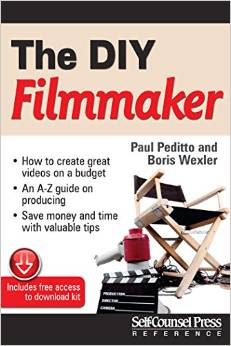
I like to keep tabs on former students. Does my heart good to hear when they do well.
One of these is Kaj Kjellesvig.
You can check out his award-winning Demo Reel, and some of his other work, here. I knew he’d be something special before he even left school, with a movie he wrote called BEAST.
I asked Kaj recently to write a Letter To The Troops…some wise words to my current students from a recent graduate.  His letter back was wise beyond his tender years (tender…threw that one in for you, Kaj!) He sent back a pretty incredible ten point list of advice for them, which I’d like to share with you, Good Reader.
His letter back was wise beyond his tender years (tender…threw that one in for you, Kaj!) He sent back a pretty incredible ten point list of advice for them, which I’d like to share with you, Good Reader.
“Students of Columbia College Chicago,
Listen closely.
I’m not writing this to feed you cliché bullshit about “paying your dues,” or to suggest you gain experience by working on yet another crappy student film about a cancer surviving, transgender, Vietnam War Vet with AIDS.
The writer is a dying breed. Technology has advanced to a point where everyone and their mother has a camera and thinks that their next short film idea that they wrote is going to Cannes just because they shot it on a RED camera.
Fortunately for you, becoming a great writer is a sound investment that will pay off in the long run, because you will be able to write a compelling story that will keep your audience invested. Meanwhile, everyone who is trying to become the next Michael Bay will be swept away when the next fad comes into fruition.
The road to becoming a paid professional is a long and arduous one as you’ve heard one too many times by your Columbia faculty. They forget to tell you that if you’re smart about it, it may not take as long as you think.
1. Diversify. You want to be a writer? Get in line. Here’s the problem with becoming a specialist nowadays- your job security rests in the hands of one skill that you do really well. Unfortunately, that means that you are very expendable, unless you are a Charlie Kaufman or an Aaron Sorkin, and even Sorkin is also a producer and a playwright. So do yourself a favor and branch out- it will give you a lot more options.
In my own experiences, my screenwriting work has produced the least amount of money overall- and it was my focus at Columbia. I have made more money from camera operating and motion graphics than writing. However, now I’m at a place where I am producing and directing, and because of my focus as a screenwriter, my scripts are benefiting considerably because of it. I guess what I’m saying is this, if you want to be a full-time screenwriter, prepare to wait a lot of tables.
All of the screenwriters that I’ve talked to that are significantly more talented and experienced than I am all have day jobs.
There are two kinds of people in the workforce- the hustlers and the 9-5ers. The 9-5ers, no matter what their working hours actually are, are content with showing up to work, doing what they are told and then going back home. The hustlers are the ones with the entrepreneurial spirit, the people who are constantly putting in the hours and networking. They are the ones that will be hiring you. They are also the people that others want to hire. Which one are you going to be?
2. Social Networking. I LOATHE social networking. If I could remove myself from Twitter, Facebook, Tumblr, Youtube, Soundcloud, and Vimeo I would. The more time I have away from the computer, the better. However, I make invaluable contacts through these networks. It is also through these networks that I gain followers. That way, when I have work to post, there is a pool of people that will see it and possibly even share it.
Don’t ever cater to the web. Don’t think about your audience when you post. There will ALWAYS be an audience for what you’re interested in. Seriously, there is a following for EVERYTHING on the Internet. If you gave me thirty minutes I could probably find a forum dedicated to politically active LARPERS who are N64 enthusiasts. If you just start posting things based on Search Engine Optimization, you’ll get bored fairly quickly, because you may or may not be interested in that topic. And who wants to be the douche bag that posts those “25 tips to help you become a better filmmaker” pieces of garbage?
Post regularly, and post good content. The best Internet superstars are fantastically talented at being content aggregators. Remember, good artists borrow- great artists steal.
If you like writing about horror, then start a horror blog. It’s that simple.
Here’s a side note- learn some Internet etiquette. If you ever hope to become a working professional, this should be a no brainer. You are beyond hope if I have to explain to you not to post the pictures of yourself half naked in a rabbit suit, passed out on Cinco De Mayo. There is no “Common Sense” supplement I can give you for that level of stupidity. Wow, I can’t believe I even have to tell some people this.
3. The Big Picture.
“It takes ten years to become an overnight success.” –Eddie Cantor
I always say that a great filmmaker should also be really good at Rube Goldberg projects. You know- the contraptions that start off with a marble rolling and it sets off a series of chain reactions until the end result. It’s one thing to say, “I want to become a great screenwriter,” and another thing entirely to go out and do it. That’s nothing new- you’ve got the “talkers” and the “walkers.” I had a fellow classmate who said, “I can’t wait to sell some scripts and be rolling down Mulholland Drive with my friends in some Ferraris.” I am not joking. People actually believe that.
You’re not going to get anywhere if you write a feature and wait for the calls to come in. That is why film-making majors are ridiculed in popular culture. I cannot tell you how many times- upon telling my high school classmates what I was studying- that I would hear, “Could I get fries with that?” People say that because film students are notorious for having starry eyes.
Identify your end goal and give yourself tangible steps along the way. If your goals are- 1. Make a short film 2. Submit that film to festivals 3. Get the film some distribution sales- then you are going about it wrong! Make the goals smaller, and make them attainable.
4. Always Be Learning.
Read like the wind. Sure, having fun in college is a right of passage, but nobody ever looks back at their college experience and says, “Man, I wish I would have passed out from drinking Southern Comfort in Grant Park more often.” If you are doing college right than you should feel like some ghoulish swamp thing that comes out from the crypt only the feast on the flesh of the living. In all seriousness though, do a lot of research. Take advantage of the screenwriting lab. Read all of the darn film-making books you can get your hands on. And watch a lot of movies… duh.
5. Always Be Writing.
This goes without saying. Not only should you be writing frequently, but you should also have 3 or 4 other projects that you can pitch should the need arise. You never know.
6. Stop and Smell the Roses.
All great writing comes from inspiration. If you don’t get away from the computer, then all of your scripts will be about a screenwriter. There have been many screenplays about filmmakers in the past ten years. Get away from your dorm/apartment and go on some adventures. You never know what good material you can get from life if you don’t experience it.
7. Learn How to Be Business Savvy
At the end of the day, it’s all about business. Nobody will take a chance on you if you don’t have a proven track record. Anytime you get paid for a gig, your employers are expecting a Return on Investment (ROI). That return on investment may be exposure or income, but it’s all the same. You are now a product.
Congratulations! You now have to sell your soul! I was never comfortable with talking myself up, but it is apart of marketing yourself. I always find it uncomfortable when I have to type up a bio and list off my accomplishments because who gives really cares?- just watch my videos. But, if you can’t brag up your portfolio then nobody will see you as an asset. Get business cards. Build a website. WordPress isn’t that hard.
8. Network.
Look around the room. There might be a chance that someone in this room will get you a job someday. Actually, there is a pretty good chance. In fact, I just hired a classmate of mine to be our full-ltime Director of Photography at my place of employment. Be nice to each other. Help out with projects. Develop working relationships. But always remember, business is business- don’t let a friendship get in the way of a business relationship. You need to draw a line somewhere.
9. Don’t Be Afraid to Invest
This is kind of an odd word of advice. Don’t be afraid to use your tuition for things like editing software. I bought a MacBook Pro in 2008 and it has been my breadwinner for 4 years.
-OK- Enough advice. Some of you are probably bored to tears. Get off Reddit and stop sending Instagrams of the breakfast that you ate at the Eleventh City Diner this morning.
During my 3 ½ years at Columbia, I did a little bit of everything. I worked art department. I also worked as a gaffer for a few projects and was a boom operator for a grad film. Mostly, I did a lot of rewrites for short films and wrote a feature. And let’s not forget all of the stupid videos I made- you can view them at Youtube.com/mysteryboxfilms.
I also wrote an adaptation of Upton Sinclair’s, The Jungle. Its working title is City of Butchers. It managed to win Columbia’s Written Image Award for Best Student Screenplay. This is the only money that I’ve ever made for screenwriting and I got it from the institution in which I gave countless thousands to. One reason why I decided not to venture out to Hollywood was because of this screenplay. It landed on a lot of high profile desks, but people don’t want to make a period piece. Also, nobody cares about Kaj Kjellesvig. In Hollywood, I’m a nobody. At one point, we had a name actor attached- but the screenplay has since faded into obscurity. If you have 30 million dollars and you love the Chicago meat packing industry, give me a call.
Upon graduating from Columbia, I went home to work at a summer camp as their videographer. I actually received advice to do this from a documentary filmmaker in New York who told me that having a camera in my hand for the summer would prove to be a better option than interning with him and grabbing people coffee.
Shortly after, I did an externship for a hunting and fishing T.V. production company. My time for them included doing camera work for competitive fishing circuits and a hunting expedition with UFC fighter Brock Lesnar (the video is somewhere on Youtube).
It was during my externship when a small company in Minnesota contacted me. They had seen my videos from my work at the summer camp and were interested in hiring me. I am now their Director of Video Production where I oversee the development and execution of various corporate videos. They are a little on the odd side. Maybe Paul will show you one of them. In one set of videos, the new employee keeps getting attacked by a panther that is hiding in every area of the building. I love my job.
Who knows what is in store for me now. I’ll just keep writing, networking and making films. There’s nothing I’d rather do.”


